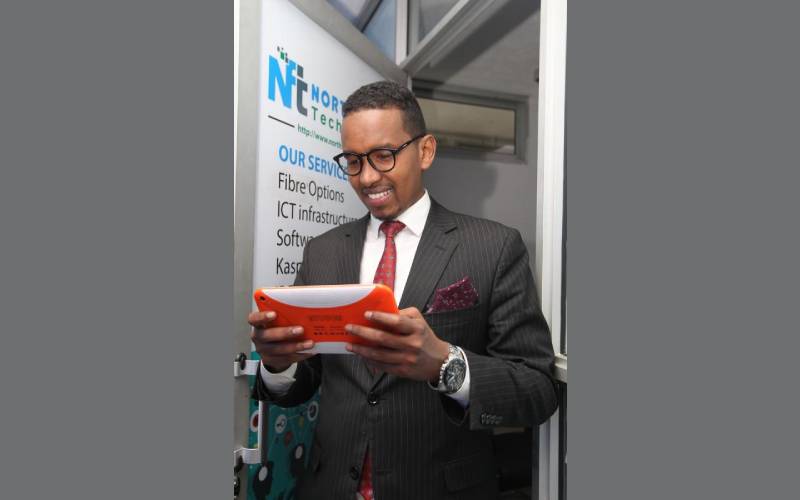×
The Standard e-Paper
Home To Bold Columnists

Abdinoor Alimahad beams with joy as he watches a clip of children taking lessons from M-Lugha, a learning application he developed in 2018.
It takes him two decades back, when he was a pupil at the Young Muslim Primary School in Garissa and at times struggled to understand English. That is what pushed him to start Northfront Technologies that develops technological solutions for learners.